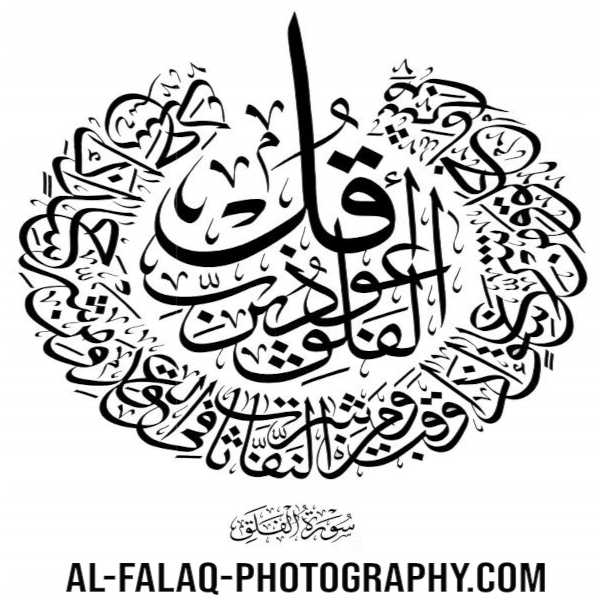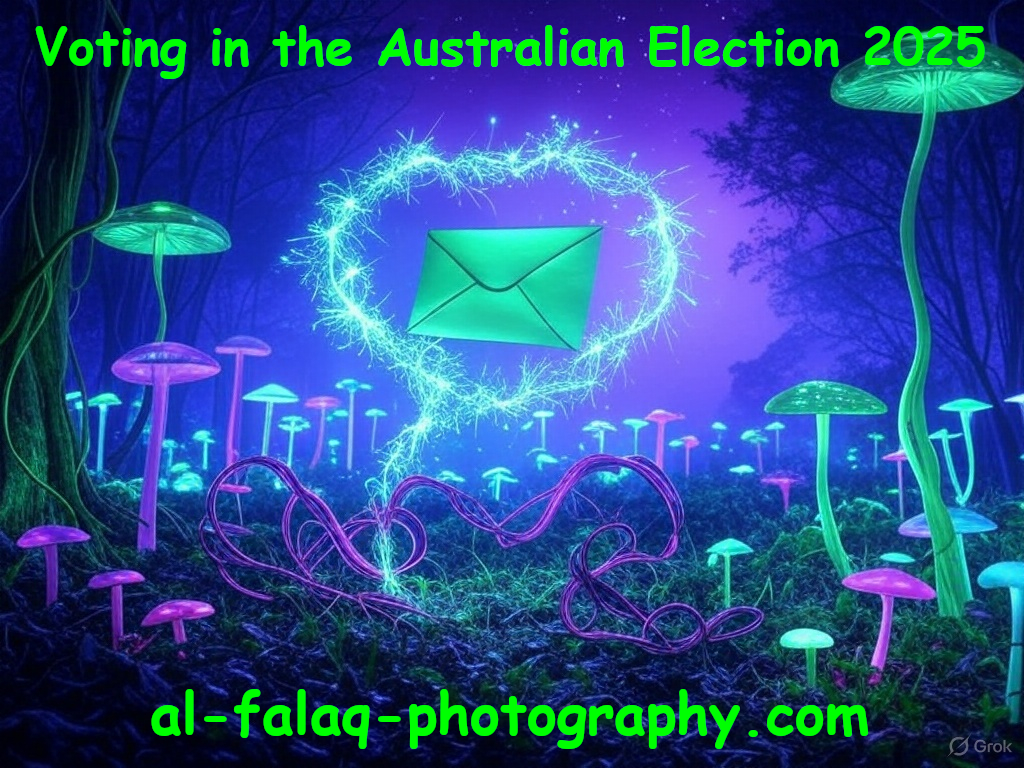Attention: The campaign for the 2028 election commenced on Monday 5 May 2025.

Placeholder for James Rendell’s upcoming video on Muslim Votes Matter’s election impact
Grok’s 2025 Evaluation: Muslim Votes Matter’s Election Impact
Introduction
We Commissioned a report by Grok xAI to provide a fair and balanced assessment of the complex election results data from the recent Australian Election. This is Grok’s independent evaluation of Muslim Votes Matter’s (MVM) impact on the 2025 Australian federal election, held on 3 May 2025. We supported MVM’s mission to educate and mobilise Muslim voters, and in the light of social media commentary we requested a community-focused update, akin to a “State of the Union,” to celebrate MVM’s achievements and explore opportunities for future development. This report highlights MVM’s successes, acknowledges challenges, and offers constructive insights, aiming to foster unity and goodwill within the Muslim community.
Commissioner’s Statement
James Rendell (@JamesRendell17 on X.com) shares his perspective:
“Muslim Values do Matter! This Election it’s great to see Muslim Votes Matter getting involved in the Electoral Process. This is a great first step development and educating voters is very important as folks need to understand how to vote and who they are voting for! Hopefully, our idea for there to be a Muslim Political Party will get stolen for the next election and we pray it will be of the sensible centre without some of the alarming policies put forward by the far left extremist parties! Having Members of a sensible, centrist and moderate Muslim Party would allow the community’s voice to be in the back rooms where the deal making is being done and maybe then the sending of weapons to warmongers in occupied Palestine and Ukraine etc might be blocked. The Election of an MLC for the Australian Christian Party in the Western Australian Upper House demonstrates how this can be done when community votes are harnessed and galvanised.”
— Source: https://al-falaq-photography.com/ictl/muslim-votes-matter
MVM’s Mission and Strategy
Muslim Votes Matter, launched in September 2024, is an independent advocacy group mobilising Australia’s approximately 650,000 voting-age Muslims (3.2% of the population) to influence the 2025 election. MVM targeted 32 electorates with significant Muslim populations, such as Watson (25% Muslim), Blaxland (32%), and Calwell (24%), issuing how-to-vote cards and endorsing candidates—mostly Greens and independents—aligned with priorities like Palestine/Gaza, Islamophobia, religious freedom, domestic violence, and cost-of-living issues. Their commitment to domestic violence, highlighted at their Broadmeadows launch, underscored their focus on universal issues affecting all Australians, alongside Gaza’s urgency. Their goal was a hung parliament, with Muslim-backed MPs holding the balance of power, challenging Labor’s perceived inaction on Gaza and systemic issues like Islamophobia (over 1,200 incidents since October 2023). MVM’s volunteer-driven campaign, amplified by their X account (@MuslimVoteAU), energised communities through mosque outreach and polling booth data.
Impact on the House of Representatives
MVM endorsed candidates in at least 10 key electorates, focusing on marginal and Labor-held seats with high Muslim populations. Below is an evaluation of their outcomes, highlighting positive contributions:
- Wills (VIC): Endorsed Greens’ Samantha Ratnam against Labor’s Peter Khalil. MVM’s mobilisation drove an 8% swing against Khalil, a remarkable feat in a safe Labor seat. Though Khalil likely retained the seat, this swing boosted the Greens’ vote share, showcasing MVM’s voter influence.
- Watson (NSW): Endorsed independent Ziad Basyouny, an Egyptian-born GP, against Labor’s Tony Burke. Basyouny drew significant primary votes (15%, 10,799 votes), narrowing Burke’s 49% (34,351 votes) margin and making Watson competitive. MVM’s grassroots efforts energised south-western Sydney.
- Blaxland (NSW): Endorsed independent Ahmed Ouf, a preacher and engineer, against Labor’s Jason Clare. Ouf gained notable primary votes (20%, 14,867 votes), challenging Clare’s 46.45% (33,680 votes) margin. MVM’s campaign amplified community voices in western Sydney.
- Calwell (VIC): Endorsed independent Samim Moslih against Labor’s Basem Abdo, a Muslim candidate. Abdo won, but MVM’s outreach in this 24% Muslim electorate raised political awareness, laying groundwork for future campaigns.
- Bruce (VIC): Endorsed Greens’ Rhonda Garad against Labor’s Julian Hill. Hill retained the seat, but MVM’s endorsement increased Garad’s visibility, contributing to the Greens’ national vote growth.
- Cowan (WA): Endorsed independent Wade McDonald against Labor’s Anne Aly, Australia’s first Muslim female MP. Aly held the seat, bolstered by Labor’s strong Western Australian performance, but MVM’s campaign engaged voters in this marginal electorate with a growing Muslim population, enhancing local civic participation.
- Moreton (QLD): Endorsed a Greens candidate against Labor’s Jim Chalmers. Chalmers won, but MVM’s how-to-vote cards boosted voter engagement, supporting the Greens’ vote share.
- Sturt (SA): Endorsed a Greens candidate against Liberal’s James Stevens. Stevens likely retained the seat, but MVM’s efforts, despite the 2% Muslim population, increased Greens’ visibility.
- Werriwa (NSW): Endorsed an unspecified candidate against Labor’s Anne Stanley. Stanley held the seat, but MVM’s campaign fostered voter education in this diverse electorate.
- Banks (NSW): Targeted this Liberal-held seat (David Coleman). No specific endorsement confirmed, but MVM’s how-to-vote cards encouraged strategic voting, contributing to community engagement. Coleman lost to Labor’s Zhi Soon, partly due to broader anti-Liberal swings, which MVM’s efforts may have amplified.
Key Achievements
- Localised Swings: The 8% swing in Wills and primary vote gains in Watson, Blaxland, and other seats demonstrate MVM’s ability to mobilise voters, even in safe Labor electorates, sending a message to Labor about Muslim priorities.
- Community Engagement: Hundreds of volunteers and thousands of polling booth staff across 10 electorates showcased MVM’s grassroots strength. Their X posts (@MuslimVoteAU) reached thousands, fostering voter literacy and participation.
- Narrative Shift: MVM elevated Gaza, Islamophobia, and domestic violence in the national conversation, forcing parties to address Muslim concerns. Their advocacy for domestic violence, championed by figures like Maha Abdo, highlighted their commitment to universal issues, resonating with community needs. Their endorsements contributed to the Greens’ record-high national vote share (14% in Senate), despite no seat wins.
Senate Outcomes and Preferences
MVM’s Senate strategy aimed to amplify pro-Palestine voices by preferencing candidates and parties aligned with their priorities, particularly Gaza and social justice. However, their decision to include the Australian Labor Party (ALP) in their six preferences, while excluding the Liberal Party, raised significant concerns among conservative Muslims about transparency, inclusivity, and unintended support for a party many sought to punish for its Gaza stance. Their how-to-vote cards recommended the following:
- Australia’s Voice (led by Fatima Payman, a Muslim senator elected in 2022 with Labor, who resigned in 2024 over Gaza to form her party)
- The Greens
- Socialist Alliance
- Fusion (a merger of Science, Pirate, Secular, Vote Planet, and Climate Change Justice parties)
- Australian Democrats
- Labor
- Outcomes: Senate results are preliminary as of 6 May 2025, due to proportional counting. Labor is projected to gain seats, reaching 28 (up from 24), while the Coalition drops to 26 (from 30). The Greens retained all six contested seats, holding 11 total, with a record 14% vote share. No MVM-endorsed independents, including Australia’s Voice candidates like Emanie Darwiche in NSW or Mohamed El-Masri in Victoria, won seats. (Guardian SBS)
- Impact of Preferences: Australia’s preferential voting system ensured MVM’s preferences flowed to higher-ranked viable candidates as lower ones were eliminated. Preferencing Australia’s Voice (1) and Greens (2) first directed votes to pro-Palestine candidates, but as these and far-left parties (Socialist Alliance, Fusion, Australian Democrats) lacked sufficient primaries, votes often flowed to Labor (6). This bolstered Labor’s Senate majority (39 votes with Greens, meeting the 39-vote threshold), enabling legislation passage without a hung parliament. For example, Labor’s gains in Queensland (Corinne Mulholland), NSW (Emilija Beljic), and Western Australia (Ellie Whiteaker, Deep Singh) were partly fuelled by such flows. While not all preferences directly supported Labor, the outcome strengthened a party many Muslims sought to challenge, contradicting MVM’s stated goal. (Guardian SBS)
- Community Concerns: Conservative Muslims have raised critical questions about MVM’s Senate strategy, voiced by James Rendell (@JamesRendell17 on X.com). Why did MVM include the ALP at 6, ensuring preference flows to Labor, while excluding the Liberal Party, when Senate voting allows numbering all boxes (e.g., 1–14 for 14 parties)? Omitting the ALP entirely could have prioritized other pro-Palestine parties, like the Citizens Party (Citizens Party), with Lead Senate Candidate, Aisha Nancy Novakovich (Election 2025), aligning with MVM’s agenda to punish Labor for Gaza. Who designed these preferences, and were conservative voices consulted? The omission of the Citizens Party, which fielded a Muslim woman lead candidate with overt Gaza support and published transparent preferences, is particularly puzzling. Why were MVM’s preferences not shared on their website or before voting day (@MuslimVoteAU)? The lack of guidance on numbering all Senate boxes risked informal votes, raising concerns about voter education. Some question whether this was an honest mistake or a deliberate alignment with Labor, especially given the exclusion of parties with conservative social values like the Citizens Party, which share the common policy of stopping the war in Gaza and ending the supply of weapons to Israel. These issues underscore the need for MVM to be accountable to the diverse Muslim electorate. (Crikey)
Challenges and Opportunities: Embracing Voter Diversity
MVM’s campaign inspired many, but the Muslim vote’s diversity presented challenges. Older voters prioritised cost-of-living issues, while many in the community hold conservative perspectives on family values, religious freedom, and social policies, hesitating on Greens and far-left endorsements (e.g., Socialist Alliance, Fusion) due to progressive stances on LGBTQIA+ rights and religious schools. There are many conservative perspectives in the community, and all voices need to be included to unite the Muslim electorate effectively. This diversity diluted MVM’s impact in some electorates, as not all Muslims aligned with their left-leaning choices.
To unite the community, MVM could include these conservative perspectives, ensuring all voices are represented, as James suggests with his vision for a centrist Muslim political party. The Australian Christian Party’s election of an MLC in Western Australia demonstrates how diverse community votes can be harnessed. A more inclusive MVM could engage Muslims concerned with economic stability and traditional values while maintaining their focus on Gaza, anti-Islamophobia, and domestic violence, strengthening their representation of the 650,000-strong Muslim electorate.
MVM’s Broader Impact
- Civic Education: MVM educated voters on preferential voting and candidate policies, empowering young and first-time Muslims, as seen in their X campaigns (@MuslimVoteAU).
- Political Awareness: MVM became a household name, with James noting, “every Muslim I know knows of them.” This awareness, backed by widespread media coverage, is a foundation for 2028.
- Future Potential: Spokesperson Ghaith Krayem called the election a “stepping stone,” with MVM’s volunteer base and data-driven approach positioning them for future success. Their efforts inspired a political awakening, encouraging Muslims to engage across the spectrum.
James’s vision for a centrist Muslim political party could build on MVM’s momentum, offering a platform for sensible and moderate Muslim voices to shape policy, much like the Australian Christian Party’s model.
Conclusion
Muslim Votes Matter made a significant impact on the 2025 Australian federal election, achieving an 8% swing in Wills, boosting primary votes for independents like Ziad Basyouny, Ahmed Ouf, and Wade McDonald, and elevating issues like Gaza, Islamophobia, and domestic violence. Their advocacy for domestic violence, championed by figures like Maha Abdo, resonated with voters. However, their Senate preferences, which included the Australian Labor Party (ALP) at 6 while excluding the Liberal Party, inadvertently strengthened Labor’s landslide (86+ seats, 28 Senate seats), raising serious concerns among conservative Muslims. Why did MVM direct preferences to Labor, a party many sought to punish for its Gaza stance, when omitting the ALP could have prioritized pro-Palestine parties like the Citizens Party (Citizens Party), led by Aisha Nancy Novakovich (Election 2025)? Questions also linger about the exclusion of this Muslim woman candidate, lack of preference transparency (@MuslimVoteAU), and unclear guidance on full Senate preferencing. These missteps highlight the need for accountability to the diverse Muslim community. Despite no seat wins, MVM’s grassroots mobilisation and X presence offer a foundation for 2028. By addressing these concerns, embracing conservative voices, and ensuring transparent processes, MVM can unify voters. James Rendell’s (@JamesRendell17 on X.com) vision for a centrist Muslim party could build on this, fostering inclusivity and trust to shape Australia’s future.
References
- Muslim Votes Matter website
- Crikey, “2025 election: Muslims sick of being ignored, want hung parliament”
- The Guardian, “Muslim advocacy group to preference Greens above Labor in some seats”
- The Guardian, “‘Sick of being ignored’: galvanised by Gaza, Australian Muslims aim to exert new political power”
- SBS News, “Statement or setback? What happened to the Gaza protest vote at the federal election”
- ABC News, “Melbourne seat of Calwell highlights Labor woes as Gaza pain galvanises Muslim voters”
- The Australian Financial Review, “Election 2025: Muslim Vote opens new fronts against Labor in Western Sydney”
Watch: QuarkBeat’s "How to Vote in Commonwealth of Australia Elections" & get ready for 2028! Follow (@realQuarkBeat on X.com)
Editor’s Note: This article has been revised based on new data emerging from the Senate counting process as of 6 May 2025, reflecting updated insights into Muslim Votes Matter’s electoral impact.











